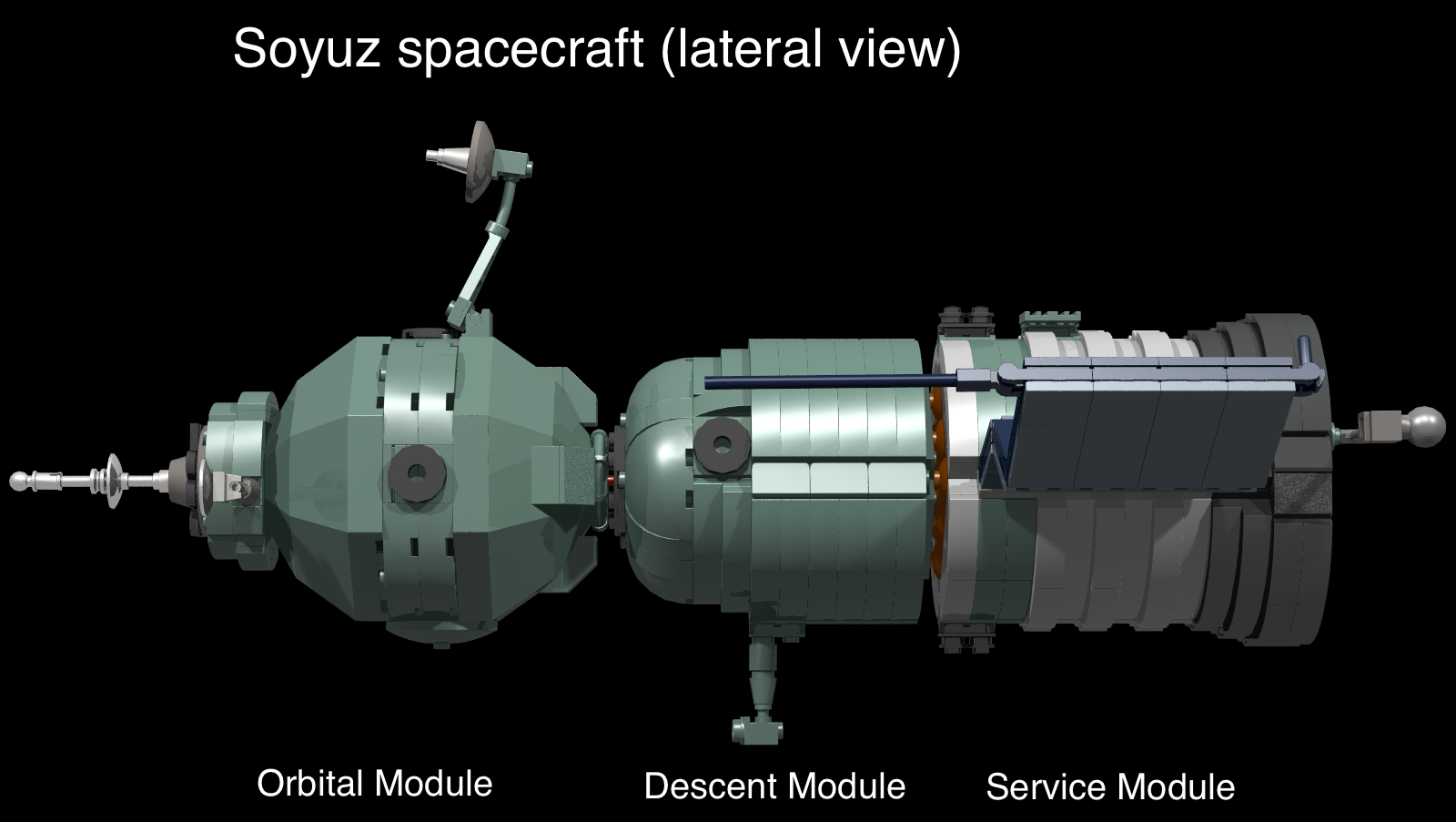Help your fellow builder by leaving your feedback based on these three criteria:
- Originality: How original is this - never seen before?
- Building Techniques: How much skill do you think the creator of this MOC has, in terms of building technique?
- Details: Express how much you like the details of the build.
Your feedback is only shown to the creator as well as yourself. It is not available for other users to see. The creator won't see your user name.
Last Updated . Click "Updates" above to see the latest.
Soyuz Spacecraft and Rocket
This project consists in a minifig scale version of the first generation of the Russian Soyuz spacecraft, the Soyuz 7K-OK. It is accompanied by a microscale model of the Soyuz rocket and spacecraft.

Background
The first Soyuz manned mission took place in 1967 and different variants of the ship have been used for more than 47 years since. All Soyuz spacecraft are based on the same basic design, by Sergei Korolev, and consists of 3 parts: the orbital module (in the front of the spacecraft), the descent module (middle section) and the service module (the rear section, has the foldable solar pannels and engines).

Korolev wanted a multipurpose ship, capable of transporting people and cargo to low Earth orbit and even devised a version capable of carrying astronauts to the moon (which unfortunately was never used). The Soyuz has served as multipurpose ship in countless missions, allowing, for example, the continued operation of the Mir space station (Mir means "Peace") for many years.
The Soyuz (variant Soyuz-TMA) is still in active service and is now the spacecraft used for transport people and supplies to and from the International Space Station.
The Soyuz spacecraft lift off from the Baikonur Cosmodrome in Kazakhstan, using a Soyuz rocket. The russian word "Soyuz" means "Union".
The Soyuz Lego Model
In this Lego model, as in the real Soyuz spacecraft, the three modules can be separated, so you can simulate the separation of the descent module, which is the only part of the spaceship that returns to Earth.
The model reproduces in detail most of the external components of the ship such as engines (1), radiator (2), solar pannels (3), active docking system (4), exterior hatch (5), periscope (6), parachute cover (7). Also the radars, windows and antennas are easily recognizable..

The orbital module can be opened and it fit two minifigs of cosmonauts (cosmonaut is the russian word for astronaut). The cosmonauts have a custom spacesuit and helmet.

I think this project has great value for collectors and fans of space exploration, for those who want to play with the model and recreate or create their own adventures and travels in the space, and of course a tremendous educational and historical value. If you like this project please support it to become it in an official Lego set.
Thank you!
Kind regards

- - -
You can find high resolution pictures of this project in my flickr album at:
- - -
Other related projects
If you like the Soyuz Spacecraft and Rocket Lego Project, be sure to visit my others Lego Space Exploration Projects in Lego Ideas:
Sputnik 1957, the first artificial satellite. https://ideas.lego.com/projects/81706
Apollo 11, an accurate reproduction of the CSM Apollo and lunar module Eagle.https://ideas.lego.com/projects/84718
Apollo 11 Rescue Mission. A set about the rescue ofthe astronauts and recovery of the Apollo 11 command module in the Pacific Ocean. https://ideas.lego.com/projects/86997
Apollo Soyuz Mission 1975. The first joint US-Russia mission. https://ideas.lego.com/projects/81989
Voyager Mission 1979-2014. https://ideas.lego.com/projects/82995
Orion Exploration Flight Test 2014, https://ideas.lego.com/projects/87437
- - -
Software used in this project:
Virtual model building:
- Lego Digital Designer (LDD), http://ldd.lego.com/en-us/
Pictures rendering:
- LDD2POVRAY, http://ldd2povray.lddtools.com/
- POVRAY, http://www.povray.org/
Custom decals design:
- Inkscape, https://www.inkscape.org/en/
